A beginner’s guide to Swissness
June 4, 2010, 36 Comments

It’s the opening round of Family Fortunes (or 5Gegen5 if you’re reading this in Switzerland). The host says, “We asked 100 people to name something associated with Switzerland.” Easy. You buzz and say cheese. Top answer! But it could’ve been chocolate, or watches, or mountains, or Heidi. In fact, any number of things so closely linked to the Alpine republic at the heart of Europe. But there’s more to Switzerland than banks, skis, francs and cheese. Swiss life is all about Swissness. But what does that mean?
Swissness is a word that is essentially self-explanatory: it means anything and everything to do with Switzerland. But it is in fact a made-up word, used by the Swiss to cross their own language barriers and so unite the country with a single word. Having an artificial English word to sum up a nation seems rather odd, until you realise that that in itself is typically Swiss. After all, this is a country whose official name is in Latin. Perhaps only the Swiss truly understand the real meaning of Swissness; the rest of us can only make educated guesses. So here’s a beginner’s guide to discovering the true meaning of Swissness:
- Don’t queue. For an otherwise polite society, the Swiss just can’t queue. At bus stops and train platforms, it’s scrum down, elbows out and every man, woman and child for themselves.
- Eat fondue the right way. If you think it’s spear, dip, twirl and eat, you’re so wrong. That fork must not touch your lips, teeth or tongue. And whatever you do, don’t drop the bread in the pot, unless the person next to you is worth kissing.
- Wear red shoes. The Swiss do. Maybe they’re being patriotic, or are all friends of Dorothy, or just want to stand out in the crowd of black, brown and grey.
- Don’t apologise when handing over a 200-franc note. What for others is a small fortune, for the Swiss is almost pocket money.
- Understate everything. Most Swiss prefer to be small not tall poppies. If you’re fluent in French, then you only speak a little; if it’s -10C outside, then it’s a bit chilly.
- Learn Swiss-English, or Swinglish. The Swiss will expect you to understand their meanings of handy, trainer, wellness and pudding. They are English words, after all.
- Don’t talk about the weather. Here’s a typical Swiss-British opener. Brit, coming inside: “Phew, it’s hot outside!” Swiss: “It’s summer.” End of discussion.
- Be the perfect guest. Arrive on time, take a gift, and introduce yourself to everyone. But do not help; never set foot in the kitchen, never refill drinks, never clear the plates, as that would imply your hosts cannot cope.
- Rediscover Sundays. A Swiss Sunday feels like being in England when it still had pound notes and Opal Fruits. Forget about going shopping or doing some DIY. Instead, visit a museum or have a family day out. Or be very Swiss and go for a walk.
- Buy a photocopier. Any application or permit needs copies of at least ten bits of paper: school reports, ID, tax return, inside-leg measurement, dental records. If it doesn’t have an official paper record, then it doesn’t exist.
Master all these and you might understand what Swissness is. Do that and you’re well on your way to becoming more Swiss than the Swiss themselves.


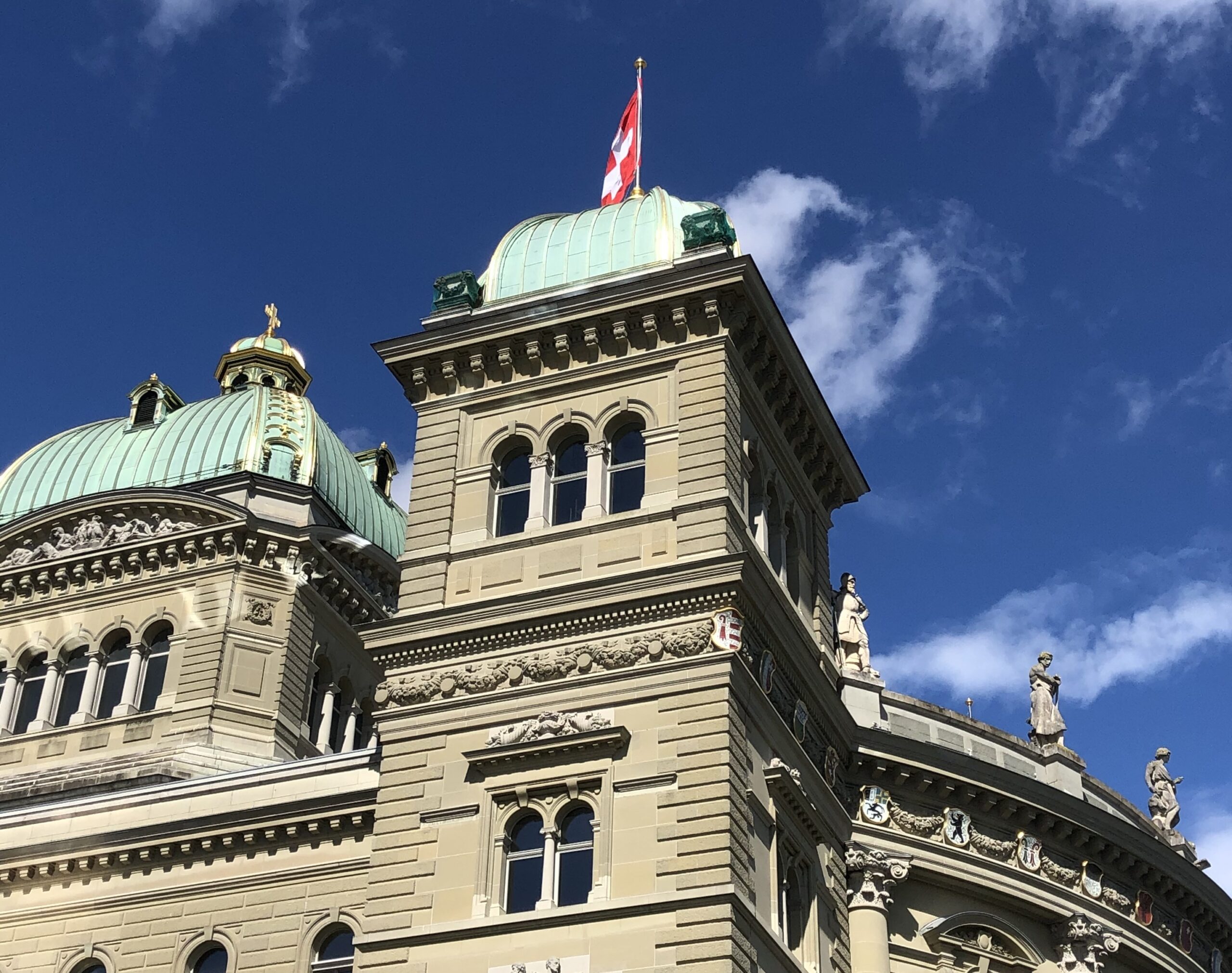



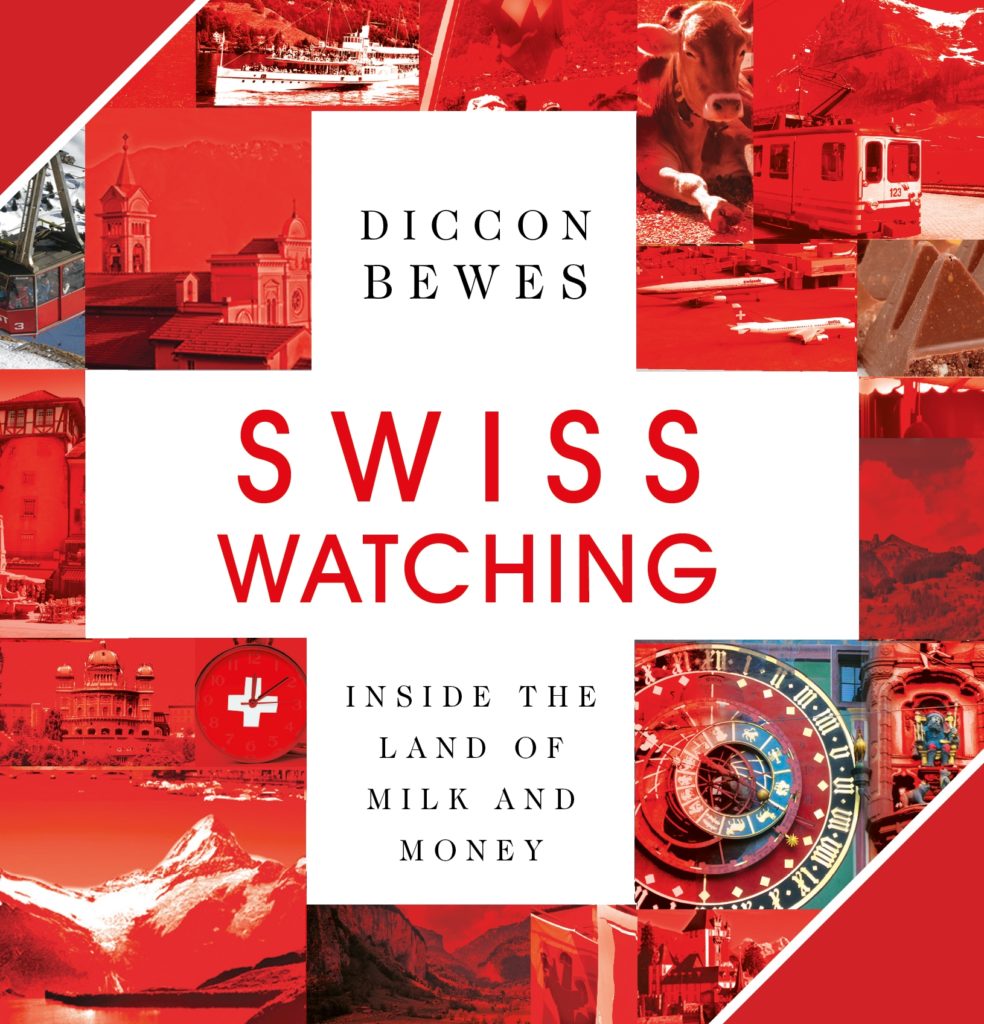
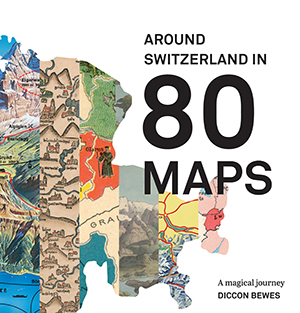
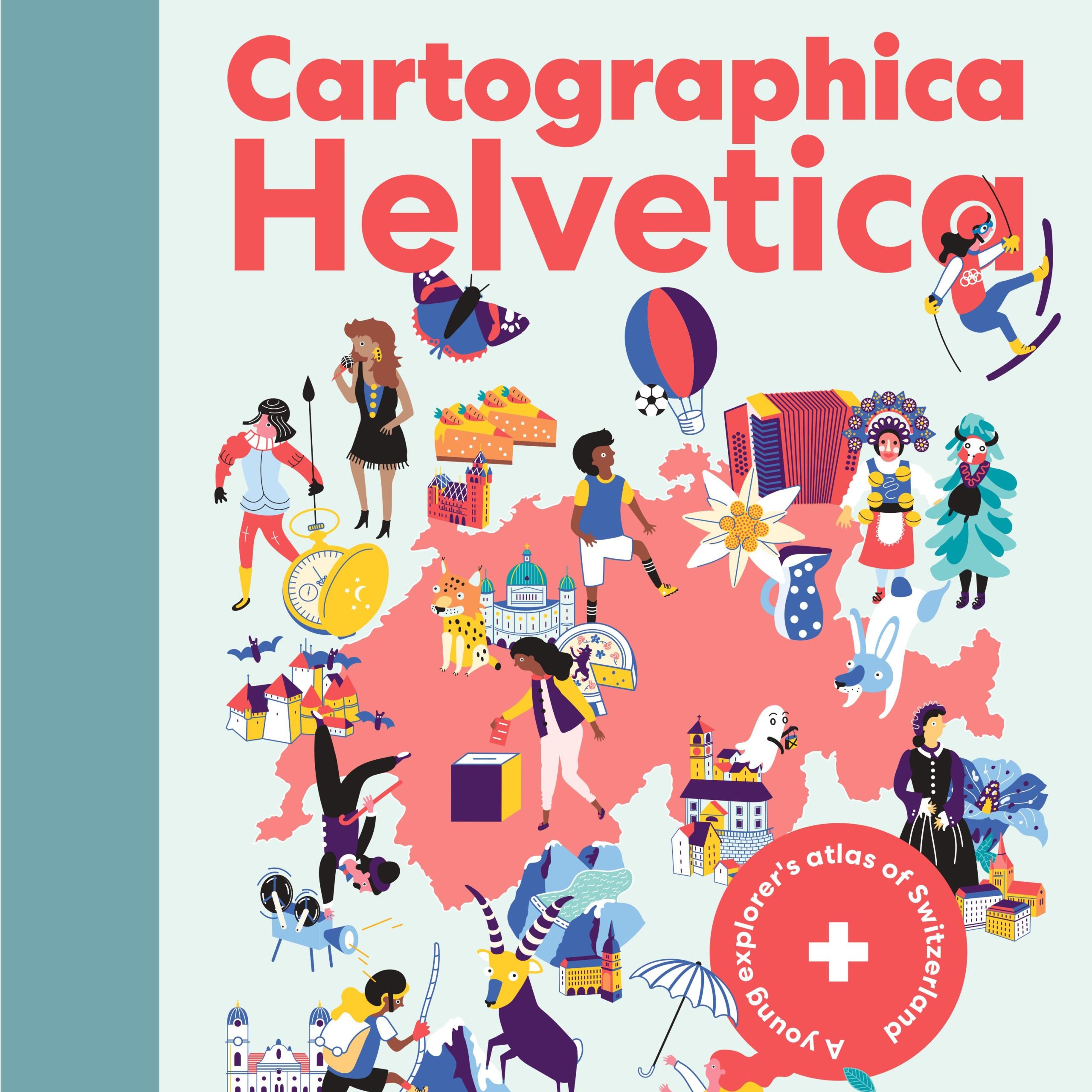
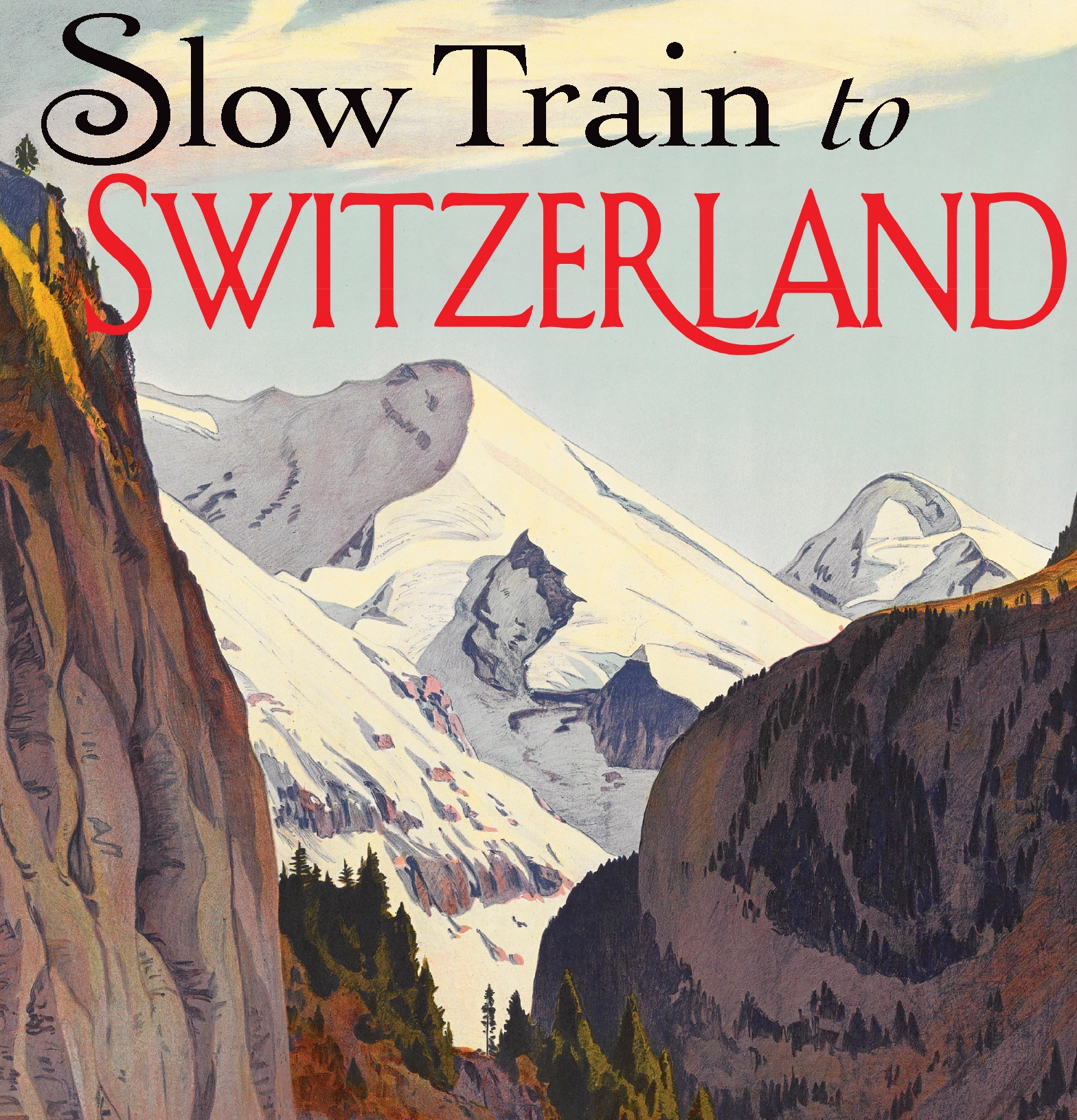

 Follow on Facebook
Follow on Facebook Follow on Twitter
Follow on Twitter Subscribe by RSS
Subscribe by RSS Contact me directly
Contact me directly Global Solutions Inc.
Global Solutions Inc.
36 Comments on "A beginner’s guide to Swissness"
I loved today’s post.
Thanks
Have a great weekend!
Yolanda
Thanks Yolanda. Glad you liked the post. And the weekend is perfect so far. Hope yours is too.
Nice introduction to Swissness but when did this word first appear or when/how was it coined?
No idea Alex. A good question. I’ll have to look into it and try to find out.
I’ve always heard “Swissiness”.
I’m an American who lived in Liestal for a year about 10 years ago, with weekends in Basel, and despite the decade since being on Swiss soil, this list is hilariously accurate! My aunt is an expat currently residing in Nusshof, and she’s picked up many of these “traditions” as well. I still love red shoes.
It’s great to find your blog (via Howdy Heidi)!
What a great post. I like the host tip the best and as time went by I guess I did this by instinct. It certainly makes me miss Switzerland that much more!
I actually do know a bit about Swissness which came to term somewhere in the late 1990’s I believe. I’m guessing 1999, which was really the term which meant Made in Switzerland.
I read your blog attentively, and in particular this posting, but as funny as your portrayal of the Swiss may be, it makes the very common assumption of mistaking Swiss-Germaneness for Swissness. Not only that, but in my opinion it also propagates an idea of Swissness that perhaps some people like to believe is true, but that in reality is not only not real, but also dangerous. I wrote a lengthy response that you can read on my own blog, “view da la lòbbia”, and here are the main thoughts.
Let’s look at the stats: there are more than 20% foreigners living in Switzerland and the country is made up of four major linguistic areas. According to the 2000 Swiss Census, 63.7% of residents speak either German or Swiss-German, 20.4% speak French, 6.5% speak Italian, 0.5% speak Rumantsch, and 9% speak other languages, with two thirds of foreigners listing a Swiss national language as their first language. Anyone travelling through Switzerland immediately notices the geographic, cultural, linguistic, and natural differences between each area. I live in a small, conservative village in northern Ticino. My father is Ticinese and my mother is American, and most people around me either come from or form a mixed family. Few of the Swiss traits described by you seem to apply to the people I know, and if my friends and family are foreign to Swissness, then what is the purpose of the concept?
Most expats and travelers seem to focus in or around the big centers, such as Zurich, Lausanne, and Geneva, with stock travels to Interlaken, Lucern, and perhaps Lugano. But few know what it’s really like to live in the mountains and valleys, and few realize the diversity that lies at the heart of the country. It has to be that way: Switzerland is too small and too centrally located to be the island that it pretends to be. And look at its history: except perhaps for a short post-war period, Switzerland has always absorbed a large number of immigrants. It also exported large numbers of emigrants, either because they were dirt poor, like here in Ticino, or persecuted, like the German Anabaptists. Instead of an insulated country fiercely holding on to an identity that eludes even most Swiss people, I see a country with a history of emigration and immigration, with rich cultural and linguistic exchanges.
I understand landing in a country as an expat and feeling the need to pin down the strangeness of one’s surroundings–I myself lived in Dublin and New York, in addition to Zurich, which was probably the strangest of all. Making fun of such differences can be therapeutic, entertaining, and part of the process of getting to know a new place and its customs. But coming from a minority area I am extra sensitive to traits being advertized as Swiss, which to me sound entirely Swiss-German. Switzerland is a diverse place, and its beauty and success arises from the fact that it is more than just German-Switzerland. “A Beginner’s Guide to Swissness” is misleading precisely because the idea of Swissness is an abstraction that conceals the social reality it attempts to convey.
And, in my opinion, it’s a dangerous one. Xenophobia relies on the distinction between Swissness and foreignness that those who know Switzerland deeply know to be false. It relies on an artificial idea of Swissness that aims to categorize and classify. And one of the biggest dangers of such portrayals is that they advertise an idea of Swissness that is either only true for a small portion of the population (and in particular from the ruling majority) or that is not true at all but that is believed to be true for personal or political reasons. There are real ramifications in promoting inaccurate images of Swissnees in times when politicians abuse xenophobia to promote identity politics, clinging to an identity that doesn’t exist and maybe never existed. Rather than artificially categorizing people, customs, and reactions based on a certain area or part of the population that is used as a model for the whole country, I would suggest investigating the delicate balance of foreignness and Swissness, of different cultures and languages, that is at the root of Swissness and that has always been part of this country.
I invite you to read my full response here: http://www.ndb-agency.ch/blog/ and thank you for having made me think so much about Swissness and why it matters so much (which could be the subject of an entirely separate conversation).
It is in short about stereotypes – the notorious “categorize and classify” as you say, and ESPECIALLY “categorizing people”. My own percpetion of my home country from afar ist exactly that. That they are obsessed by categorizing people. it something I more and more despise. Not only that, but the categories also are more narrow minded than the ‘Schrebergarten’. One of the major problems of the swiss political landscape is disinformation by the mainstream media, which goes as far as right out censorship. they have betrayed many of the core values, that once made up the swiss political fabric: free speech, the rule of law and the treatment of it’s citizens as ‘citoyens’, to whom the government is to serve. it is so bad, that this side of the pond, the federal swiss government is not considered a trustworthy contract partner anymore.
In my opinion, the swiss have set themselves up into isolation with that infamous EWR election back in the nineties. they cornered themselves and triggered an identity crisis – just like a person. what you see now is the manifestation of that identity crisis – exposing the weaknesses of the swiss mindset.
it used to be, that indivduality was considered a positive trait of a character, not unlike here in America. now, individuality is considered anti-social. i find that very dangerous, as it always was the individuality, that made the strength of the swiss – the capability to be flexible and adapt, coming up with innovative solutions fitting a situation. now, this is indoctrinated out of the swiss mind. with the result, that those people are either left outside the economic context or they simply emmigrate.
my take is, that if this trend does not reverse, switzerland will revert back to its status in the 19th century as a marginal, underdevelopped conglomerate of poor valleys.
blocher, who i generally dislike, once made a joke, that the swiss should apply to become a state of the US. every joke has some truth, because, from a point of view of political system, the two are much closer than the non-democracy without legitimization by the general populus called EU.
i like your take about switzerland being a zone of transit. the thing is, that the transit lines, so to speak, or trade routes have changed since the foundation of th Eu and the re-opening of eastern europe. they have in the context of switzerlan changed from a north south direction to a west east direction. suddenly, switzerland is not at the center of the transit lines, but somewhere out on the fringes. the new center is … germany. just check it out on the map. this shift is maybe at the core of the identity crisis of the swiss.
I frankly don’t get the one about the red shoes. being swiss myself I don’t remember. Manhattan amnesia maybe.
The don’t queue bit… I find that extremely rude and had a few timeswhen I was ‘back in the old country’ when I made remarks in rather crude yankee slang about that behaviour. but after all, we have perfected queuing with our snakewise winding roped pathways through the gate areas. it is always amusing watching swiss tourists in those queues in front of the security check.
There is no such thing as summer in switzerland. end of discussion and a pun to brits.
Hot: try 40 – 45nonstop between june and september.
neverhteless: would you please install A/Cs in some aereas over there?
Fondue is a ritual. that is why we point out ‘the right way’. it is a celebration of friendship in a circle. ’12 around 1′.
usually being invited to a fondue dinner is a token of friendship.
What are opal fruits?
greetings from ny. lea.
Opal Fruits are now called Starburst, just as Marathon is now called Snickers. British sweets used have their own names, then they were all Americanised in the late 80s, presumably to save money on packaging though possibly so that visiting Americans would know what to buy. Ask any Brit over the age of 35 and they will have fond memories of the old names.
As for A/C, I’m rather glad it isn’t everywhere like in the US. I remember having to wear a jumper just to go to the cinema in summer in NYC. With A/C on, you never reall acclimatise and it’s so un-green. On that point, I like living back in the 1980s, ie Switzerland.
Ha Ha “I like living back in the 1980s, ie Switzerland” that is a good one!
I hate A/C, but on trains, buses and in restaurants I like it a lot. I remember walking into departmentstores in Zurich and get a whiff of that stale air. well, let’s just call it stale air.
un-green. hmmm. how long you live over there? a lot of that is perception, you know. guess who the largest producer of power wih wind turbines is? and guess the state , too. a state that has the most ungreen reputation.
I love this post, and you are right on! I actually wrote an entire post dedicated to Swinglish, entitled “Swinglish 101 (The Swiss Say the Darnest Things)”… I thought you might like it 😉
http://newlyswissed.com/?p=144
Take care, and keep up your fun blog!
Dimitri
I have read this article with my good friend, who is also an exchange student. We are from Canada and the United States, respectively. We have been near Bern for about two months now, and man do we agree with all of these tips.
The red shoes thing is definitely true. Our other exchange friend (who has your book) counted 38 pairs of red shoes in only four hours.
The whole thing about handing over money that you believe the other person will not be able to change is so true. When I first got here, I felt very guilty about paying for a four franc piece of pizza with a 100 Fr. note.
It is a bit of a culture shock coming here and realizing that every social event you MUST intorduce yourself to EVERYBODY by shaking their hands or giving them three kisses. Just as well, the fact that Sundays are automatically the dullest day of the week because almost everything is closed if it is owned by a Swiss company.
We have also noticed that nothing is impressive to the Swiss.
I am sure we will notice many more things in our remaining time here, and we would love to meet you when we come and buy your book from your store. We are in Bern almost every day and just realized that we pass by it EVERY day.
Thanks for the tips!
We look forward to reading more.
Good to meet you the other day Brandon. Hope you are enjoying the book. Pop into the shop again sometime!
swissness : die firma “moha of switzerland” bedient sich mit einem schweizerkreuz dern
qualitätsnsprüchender schweizerqualität aber <<<>>
da staune ich womit überhaupt noch von schweizerarbeit gesprochen werden kann
http://www.moha-swiss.com
I’m quite surprised about the points you took.
I’m Swiss but nobody would ever say to me that I’m really patriotic, “typically Swiss” or whatever.
So maybe it’s just logical that almost none of this 10 points pretains to me.
But I know quite a few people that seem to be really Swiss.
But not even them or any of the other people I know would fulfill more then 20% of the things listed.
I know some stereotypes which are quite more accurate.
Just a humbly opinion from some Swiss guy, living in this country already his whole life.
Oh no that’s burst my bubble, I’ve been touching the fondue fork on my mouth here for 9 years and no-one ever said anything. And I thought they were my friends…
My mother was an Austrian citizen who lived in Switzerland. I am a US citizen.
As she was very sick and 92 years old, I asked the Swiss for a one year permit to stay with her.
They declined my request by saying the following: you have the financial means to stay here for one year. But your mother does not need you as she can go to any of the 53 nursing homes in the city she lives in.”
I was told to leave by June 24th and was given a postcard to hand in at the airport.
She died on June 14th.
To me Switzerland is an inhumane country. They speeded up her death.
Me being Swiss. While I was reading this is was just the stupidest thing I have ever read. Most of it was just bullshit. It’s as if you were literally making stuff as you went. I’m not trying to be rude but I mean COME ON! Who the hell would actually believe this shit. Once again not trying make fun of whoever wrote this. Just understand what u wrote was total and compete bullshit!!
Have a nice day
Interesting article. In Australia we always queue. If someone jumps the queue it is very rude. I love Switzerland, Beautiful country.
I am a Swiss (and my English is very bad so… I’m sry ????). I found it very funny to read. Not all of them are right (like the queue) but it’s always difficulte to find such “clischées”. (It’s summer and the Handy is very good ????)
I am puzzled by the embarrasing mistakes the Swiss make in their attempts to communicate in English.
Swissness = Schweizheit (Nomen)
Swiss = Schweizer/in (Nomen), schweizer/isch
Trackbacks for this post